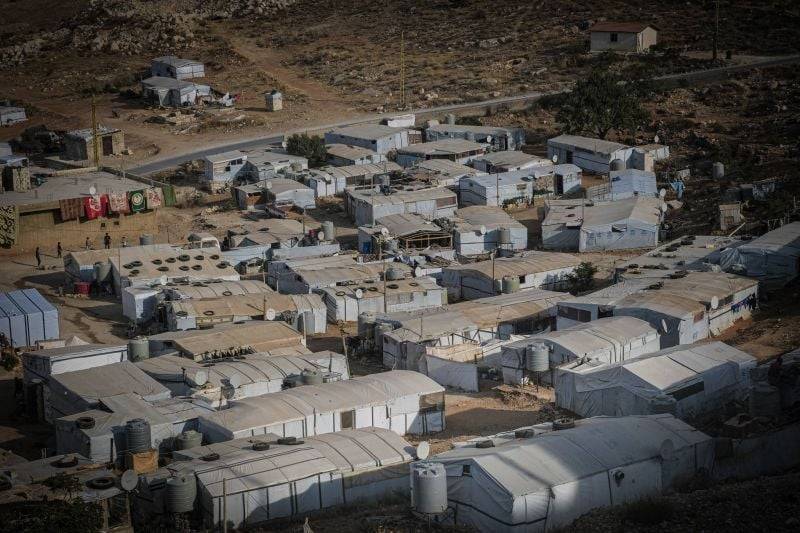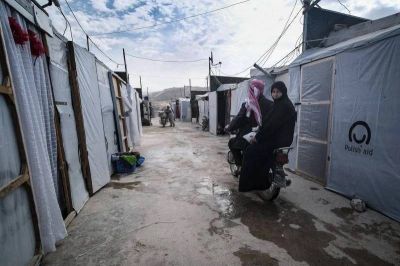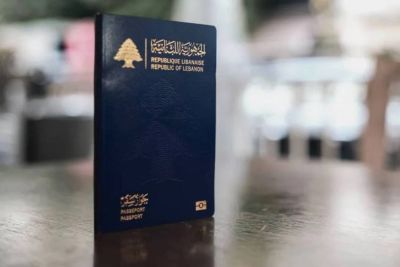
An informal Syrian refugee camp in Lebanon. (Credit: Joao Sousa/L'Orient Today/File photo)
BEIRUT — The acting director of General Security, Elias Baissari, said Monday that the repatriation of Syrian refugees from Lebanon to Syria requires a "political agreement" between Beirut, Damascus and the international community.
"There is international interest in the refugee issue, which is linked to three factors: the Syrian state, the situation in Lebanon and the will of the international community," Baissari told the Kuwaiti newspaper al-Rai in an interview published on Monday. "A political agreement between the three parties is required to reach solutions."
His words come after caretaker Foreign Minister Abdallah Bou Habib, stepped down from the ministerial committee responsible for conducting talks with Damascus on refugee returns.
It was a decision that many observers attributed to Bou Habib not wishing to antagonize Western countries after a European Parliament resolution passed last Wednesday stipulated that the conditions for "safe and dignified" returns to Syria had not yet been met.
The EU resolution also called on Beirut "not to proceed with expulsions" of Syrian refugees present on Lebanese soil.
Amid increased deportations of Syrians from Lebanon in recent months, rights groups have decried dangerous conditions inside Syria, including mandatory military conscription, detainment and forced disappearances.
Earlier this month, Human Rights Watch reported that Lebanon had arrested more 2,000 Syrians and deported 1,800 since April amid increasingly aggressive policing of displaced Syrian communities in Lebanon and a rise in anti-Syrian refugee rhetoric from political and religious leaders.
Economic and security impact
Baissari also acknowledged that some refugees face "political or security problems" in Syria.
"We are obliged, under international law and humanitarian standards, not to send them back to their country. But the problem lies in the economic displacement" of people, he added, arguing that when Syrians come to Lebanon to work, "it affects economic and commercial activity. It's a competition for which our people pay the price."
He added that "the impact of Syrian refugees on security cannot be overlooked... The crime rate has increased and exhausted law enforcement agencies," he said, without providing data to back up his remarks.
No passport crisis
Addressing the difficulties encountered by the Lebanese in obtaining passports, Baissari assured that "there is no passport crisis but a rush crisis" for passports, noting that General Security delivers 3,000 passports daily, compared to 800 or 1,000 previously.
He also stressed that Lebanon would obtain international financing to guarantee the delivery of passports. General Security has enough passports for the rest of this year and next, he claimed.
Demand for travel documents in Lebanon has not abated since the onset of the economic crisis nearly four years ago, despite regular assurances from General Security.

